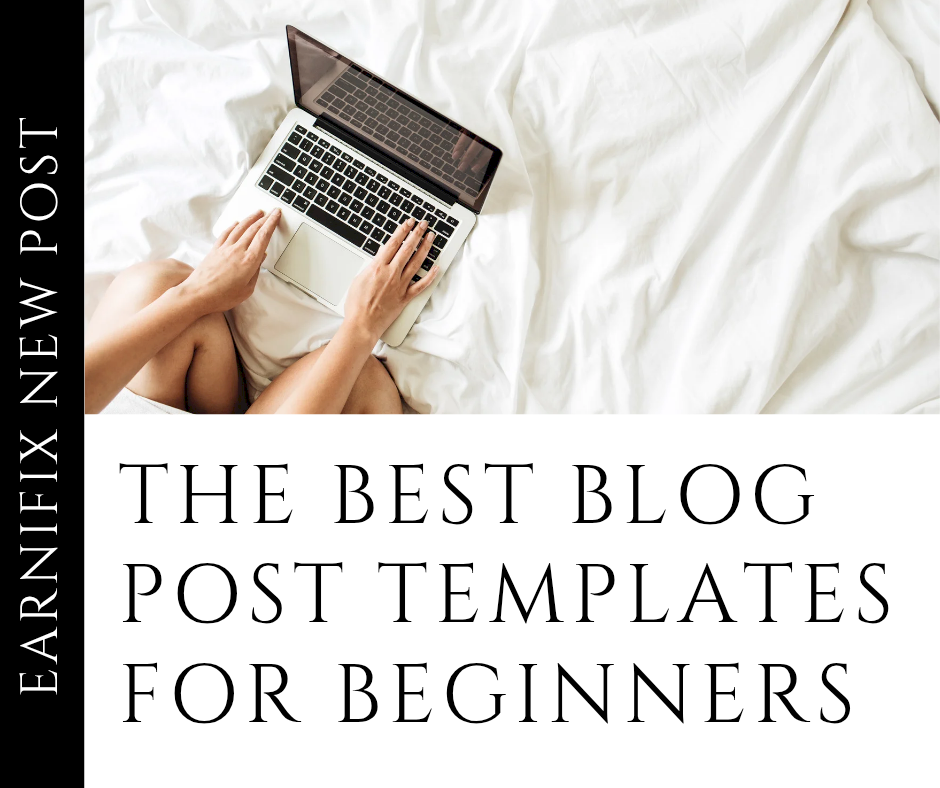
Starting a blog can feel exciting but also intimidating. You might have tons of ideas but struggle to put them into words. Or maybe you begin writing, only to get stuck halfway, unsure how to structure your article. This is where blog post templates come in handy.
A blog post template is like a roadmap. It gives you a proven structure for your content so you don’t waste time guessing what to write next. Instead of reinventing the wheel every time, you can follow a framework that ensures your posts are clear, engaging, and optimized for readers and search engines.
For African bloggers, templates are especially valuable. Many new bloggers are juggling full time jobs, school, or small businesses, and time is limited. Having a solid structure makes blogging easier and helps you publish consistently, which is key for growth.
In this guide, we’ll explore the best blog post templates for beginners in 2025, with examples you can adapt for your own niche.
Why Use Blog Post Templates?
1. Saves Time – You don’t waste hours figuring out where to start.
2. Boosts Confidence – A clear structure keeps you from getting stuck.
3. Improves SEO – Templates ensure you use headings, keywords, and calls-to-action properly.
4. Keeps Consistency – Readers get used to your style, making your blog more professional.
5. Eases Learning Curve – Especially for beginners who aren’t used to writing long articles.
1. The “How-To” Template
This is one of the most popular blog formats because people love practical solutions.
Structure:
Introduction: Highlight the problem.
Step-by-Step Instructions: Numbered or bulleted steps.
Tips or Warnings: Share insights to avoid mistakes.
Conclusion: Summarize and encourage action.
Example for African Bloggers:
“How to Start a Profitable Small Business in Lagos With Less Than ₦50,000”
2. The Listicle Template
Listicles (articles written as lists) are easy to read and highly shareable.
Structure:
Introduction: Explain why the list is useful.
List Items: Each with a heading and short explanation.
Conclusion: Wrap up with encouragement or next steps.
Example:
“10 Affordable Fashion Brands in Africa You Should Know in 2025”
3. The Beginner’s Guide Template
Great for attracting readers who are new to your niche.
Structure:
Introduction: Define the topic.
Basics: Explain simple terms.
Step by Step Guide: Walk readers through the process.
Extra Resources: Suggest tools or links for deeper learning.
Conclusion: Encourage readers to take the first step.
Example:
“A Beginner’s Guide to Starting a Travel Blog in Kenya”
4. The Product Review Template
Reviews help build trust and can also earn affiliate income.
Structure:
Introduction: Why you’re reviewing the product.
Features/Benefits: What it offers.
Pros and Cons: Honest comparison.
Your Experience: Personal insights.
Verdict: Should the reader buy it?
Example:
“Review of the Best Affordable Smartphones for African Bloggers in 2025”
5. The Comparison Template
Perfect for readers trying to choose between two or more options.
Structure:
Introduction: Why the comparison matters.
Criteria: Explain how you’re comparing (price, features, usability).
Side by Side Comparison: Break down each option.
Winner: Share your recommendation.
Conclusion: Encourage readers to pick based on their needs.
Example:
“WordPress vs Wix: Which Platform Is Best for African Bloggers in 2025?”
6. The Case Study Template
Case studies are powerful for showing real-life results.
Structure:
Introduction: The problem or challenge.
Background: Who is involved.
Process: Steps taken to solve the problem.
Results: What happened.
Lessons Learned: Key takeaways.
Example:
“How a South African Blogger Grew Her Blog Traffic by 300% Using Social Media”
7. The Opinion/Thought Leadership Template
Great for building authority in your niche.
Structure:
Introduction: State your opinion.
Supporting Points: Give reasons with evidence.
Counterarguments: Address opposing views.
Conclusion: Reinforce your perspective.
Example:
“Why African Bloggers Should Focus on Local Content Before Going Global”
8. The Checklist Template
Simple and effective for practical topics.
Structure:
Introduction: Explain why a checklist is needed.
Checklist Items: Numbered or bulleted list.
Final Note: Encourage readers to use it.
Example:
“Checklist for Launching Your First Blog in Africa (2025 Edition)”
9. The FAQ Template
Answering common questions builds trust and saves readers time.
Structure:
Introduction: Explain why FAQs matter.
Questions and Answers: Organize by category.
Conclusion: Suggest further reading.
Example:
“Frequently Asked Questions About Monetizing Blogs in Nigeria”
10. The Storytelling Template
Humans connect with stories, making this format engaging.
Structure:
Introduction: Set the scene.
The Struggle: Explain the problem or challenge.
The Solution: How you overcame it.
The Result: What changed.
Takeaway: Lessons for the reader.
Example:
“My Journey of Starting a Blog in Accra With Zero Tech Skills”
Tips for Using Templates Without Sounding Robotic
Add Your Voice: Templates guide structure, not tone. Write in your natural style.
Localize Examples: Use African brands, stories, and experiences.
Mix Formats: Combine templates, for example, a case study listicle.
Update Regularly: Refresh old posts by applying templates.
Real Life African Example
A Kenyan food blogger struggled with consistency until she discovered the checklist template. She started creating posts like “Checklist for Hosting the Perfect Kenyan Christmas Dinner.” The format saved her time, resonated with readers, and doubled her publishing frequency.
Final Thoughts
Blog post templates are a beginner blogger’s secret weapon. They simplify writing, ensure professional structure, and keep your blog consistent. For African bloggers, they’re especially valuable because they save time and energy while still allowing space for creativity and personal stories.
Start with these 10 templates, adapt them to your niche, and soon you’ll find blogging much easier. Remember: the structure is there to guide you, but your unique African voice is what will keep readers coming back.
beauty
Awesome
ruth
Amazing, thank you
leesha
Wonderful content thank you
mandy
Very Educative. Thank you
temitope
Awesome 🫰